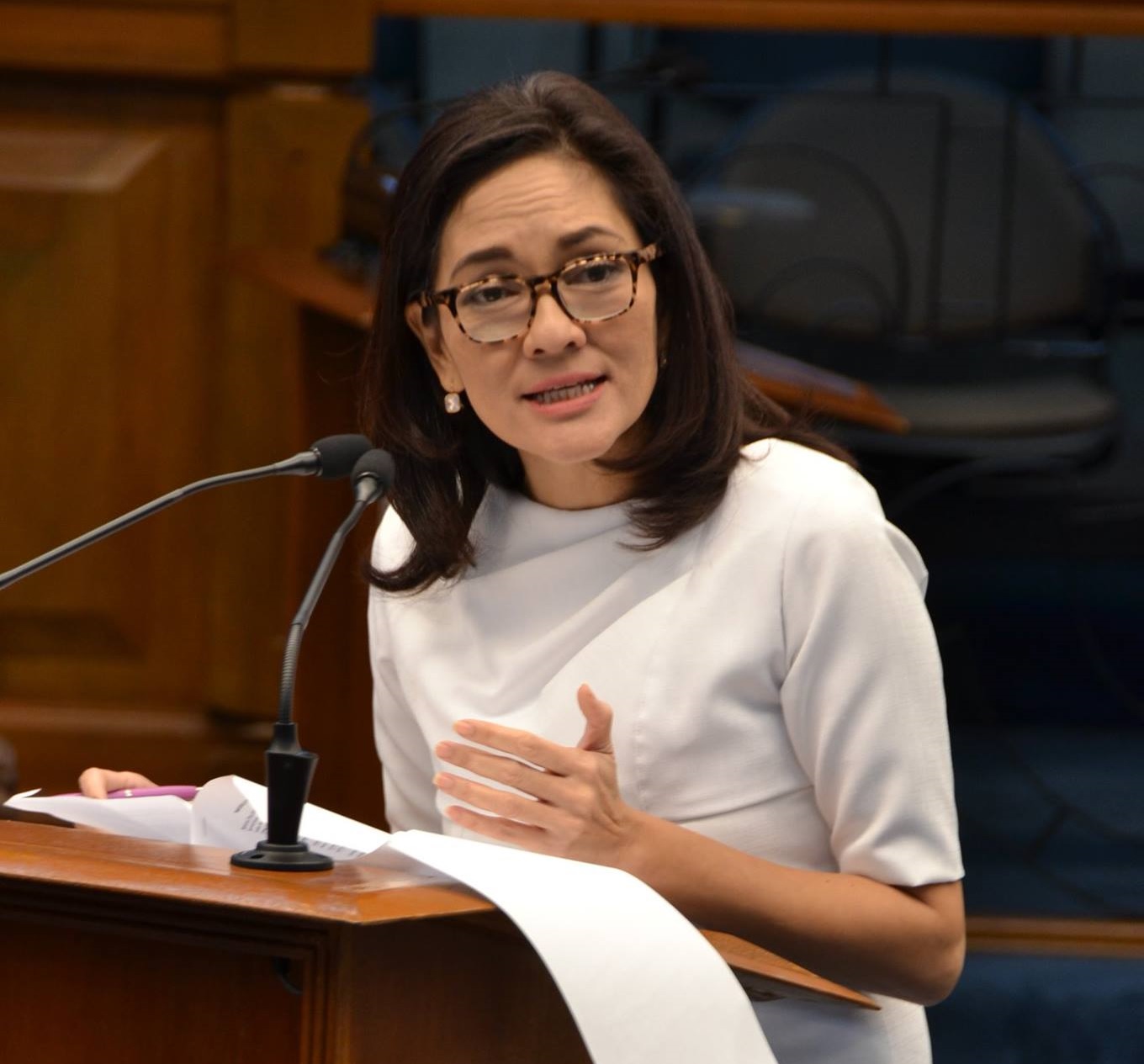Headline
Sen. Risa Hontiveros files ‘Tres Marias’ bills vs. on-line sexual harassment

Senator Risa Hontiveros said that her “Tres Marias” bills are in response to the growing number of sexual harassment cases against women. (Photo: Senator Risa Hontiveros/Facebook)
MANILA—Senator Risa Hontiveros filed on Tuesday three bills she dubbed as “Tres Marias” which aim to boost existing laws that protect women particularly from sexual harassment, both online and offline.
Hontiveros disclosed the filing of Senate Bill Nos. 1250, 1251 and 1252 in a press conference attended by Dr. Sylvia Claudio of the University of the Philippines (UP) Center for Women Studies and student Anne Nicole De Castro at the Senate.
SB No. 1252 is an act strengthening the Anti-Rape Law while SB. No. 1250 is an act amending the Anti-Sexual Harassment Law and SB No. 1251 aims to criminalize gender-based electronic violence.
She said her “Tres Marias” bills are in response to the growing number of sexual harassment cases against women.
The lady senator cited the cases of Vice President Leni Robredo who was recently the subject of a nasty pregnancy rumor and De Castro who were sexually harassed online after joining the protest against the burial of former President Ferdinand Marcos at the Libingan ng mga Bayani.
”There is an urgent need to institute protective measures and strategic policies to combat the prevalence of the rape culture in our society which leads to physical sexual assault and other forms of violence against our women and children,” Hontiveros said.
According to SB 1251, gender-based electronic violence is an offense that refers to any acts or emissions using “ephemeral data or any form of information and communication technology” which causes mental, emotional or psychological distress to female victim or Lesbian Gay Bisexual Transgender Queer (LGBTQ) victim.
Hontiveros explained that misogynistic and homophobic attacks on social media are examples of gender-based electronic violence, victimizing young netizens who use social media as their primary outlet of expression.
Under the bill, the offenders will be sentenced with up to 10 years imprisonment and will be fined up to PHP500,000 for recording and “uploading and sharing” private pictures, audios and videos without the consent of the victim.
The bill also prohibits harassment of the victim through text messaging, obscene, misogynistic, homophobic or indecent posts in social media sites; cyber-stalking; hacking of personal accounts; and the use of location trackers on cellular devices.
On the other hand, the Anti-Rape Act amendment bill seeks to increase the age of statutory rape to 18 years old from the current age of 12 years old.
The Anti-Sexual Harassment or peer-to-peer sexual harassment bill, meanwhile, seeks to amend the current law by introducing sexual harassment between peers and those committed to a superior officer by a subordinate, or to a teacher by a student, or to a trainer by a trainee.
Hontiveros said it is high time to end the culture of rape and male sexual violence by bringing the fight to “our very homes, workplaces and the internet.”
”We will give no quarter to misogyny and sexism. We will not allow the gross and blatant disrespect, sexual assault and objectification of our women and children to continue to take safe refuge in our communities,” Hontiveros said.
The filing of the “Tres Marias” bills coincided with the observance of the International Week for the Elimination of Violence Against Women and Children (VAWC).





















